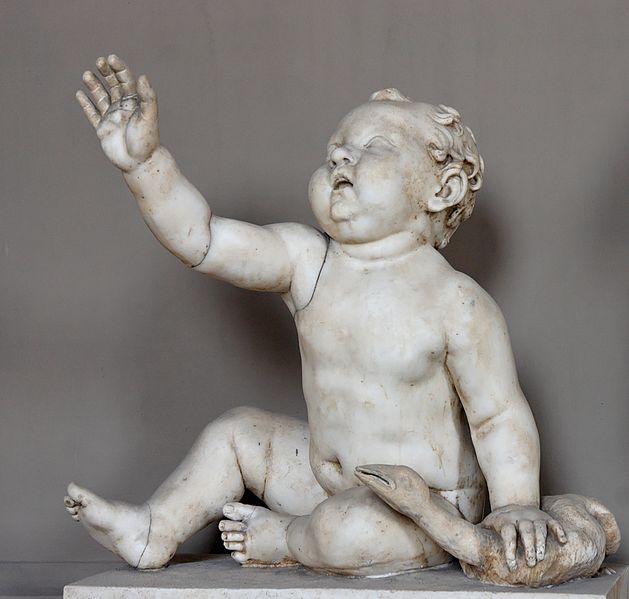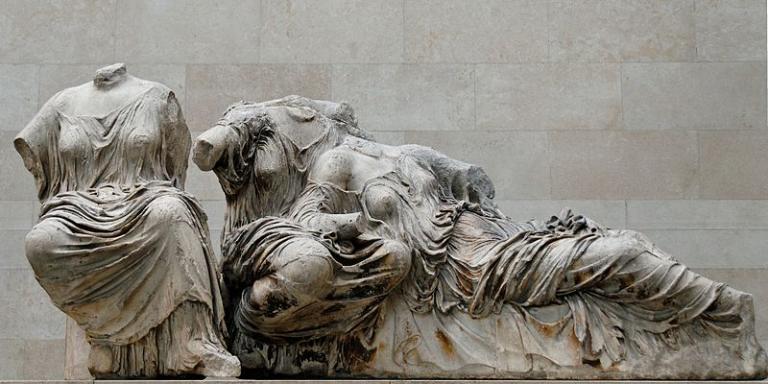Books, you can’t have enough of them I say! With endless books to read, where does one begin in their study of Hellenism? So far, the one book I recommend people to put at the top of their list is Sallustius’ On the Gods and The World.
Written in the 4th century of the Common Era, a time when the traditional ways of life in the Roman empire were increasingly being encroached upon by Christians, Greeks and Romans found themselves in a defensive position, having to ‘explain’ themselves and their way of life for the first time in history against Christian critiques. Sallustius’ On the Gods and The World is a small but deeply philosophical work. I think it was written as a short educational guide, an ancient ‘dummy guide to’ if you will, that spelled out the Greek tradition for the reader.

Sallustius (or Sallust) was a close friend of Emperor Julian who in 361 appointed him to be Praetorian Prefect of Oriens, becoming the second most powerful person in the eastern half of the empire after the emperor himself. After the untimely death of Julian, the military nominated Sallustius to become the next emperor but the offer was declined. On the Gods was dedicated to the emperor.
There are twenty-one chapters, which in the paperback edition runs a total of 45 pages. It is a quick read but is very informative. You can read the text online here. I would like to highlight just a few passages I think are crucial for the pagan community to familiarize themselves with, especially folks inspired by Hellenism.
Chapter One “What the Requisites are which an Auditor concerning the Gods ought to possess: and of common Conceptions”:
“It is requisite that those who are willing to hear concerning the gods should have been well informed from their childhood, and not nourished with foolish opinions. It is likewise necessary that they should be naturally prudent and good, that they may receive, and properly understand, the discourses which they hear. The knowledge likewise of common conceptions is necessary; but common conceptions are such things as all men, when interrogated, acknowledge to be indubitably certain; such as, that every god is good, without passivity, and free from all mutation; for every thing which is changed, is either changed into something better or into something worse: and if into something worse, it will become depraved, but if into something better, it must have been evil in the beginning.”
I find it no coincidence that that Chapter One begins with the requirement that “those who are willing to hear concerning the gods should have been well informed from their childhood, and not nourished with foolish opinions.” Sadly, it is these “foolish opinions” that run wild today nurtured largely by pop culture’s representation of the Gods. My post Why Is Mythology Mocked highlights this and cites Chapters Three and Four, so read that post as well. Let it be stressed at this point that pop culture shouldn’t be your reference point for theology-building; go to the ancient sources like Sallustius which provide a proper authentic theology.

Additionally, in Chapter One we are taught that “every god is good, without passivity, and free from all mutation” another important teaching. Today there is too much fear around Gods and avoidance of worship of certain Gods, thinking that the Gods may harm you somehow – they won’t hurt you.
Concerning functions of the Gods, Chapter Six “Concerning the super-mundane and mundane Gods” has some wonderful insights on the Gods and how you could conceptualize their activities on the world:
“But of the gods some are mundane and others super-mundane. I call those mundane who fabricate the world: but of the super-mundane, some produce essences, others intellect, and others soul; and on this account they are distinguished into three orders, in discourses concerning which orders, it is easy to discover all the gods. But of the mundane gods, some are the causes of the world’s existence, other animate the world; others again harmonize it, thus composed from different natures; and others, lastly, guard and preserve it when harmonically arranged. And since these orders are four, and each consists from things first, middle, and last, it is necessary that the disposers of these should be twelve: hence [Zeus], [Poseidon], and [Hephaestus], fabricate the world; [Demeter], [Hera], and [Artemis], animate it; [Hermes], [Aphrodite], and Apollo, harmonize it; and, lastly, [Hestia], [Athena], and [Ares], preside over it with a guardian power.”

Lastly Chapter Fourteen “How the Gods who are immutable are said to be angry and appeased” deals with another popular misconception that Gods are swayed by gifts or can be moved to anger or other passions:
“But if any one thinking agreeable to reason and truth, that the gods are immutable, doubts how they rejoice in the good, but are averse from the evil; and how they become angry with the guilty, but are rendered propitious by proper cultivation; we reply, that divinity neither rejoices; for that which rejoices is also influenced by sorrow: nor is angry; for anger is a passion: nor is appeased with gifts; for then he would be influenced by delight. Nor is it lawful that a divine nature should be well or ill affected from human concerns; for the divinities are perpetually good and profitable, but are never noxious, and ever subsist in the same uniform mode of being.
“But we, when we are good, are conjoined with the gods through similitude; but when evil, we are separated from them through dissimilitude. And while we live according to virtue, we partake of the gods, but when we become evil we cause them to become our enemies; not that they are angry, but because guilt prevents us from receiving the illuminations of the gods, and subjects us to the power of avenging dæmons. But if we obtain pardon of our guilt through prayers and sacrifices, we neither appease nor cause any mutation to take place in the gods; but by methods of this kind, and by our conversion to a divine nature, we apply a remedy to our vices, and again become partakers of the goodness of the gods. So that it is the same thing to assert that divinity is turned from the evil, as to say that the sum is concealed from those who are deprived of sight.”

The one line that stands out the most for me, “when we are good, are conjoined with the gods through similitude; but when evil, we are separated from them through dissimilitude.” Union with the Gods occurs through “similitude” – you cannot be a horrible person and expect union with the Gods. You cannot force union with the Gods through magical invocations. You need to become like them through virtue. This has been a powerful lesson that I put into practice and have seen the results.
There is so much more to be learned from Sallustius, these are just a few highlights. I encourage you to read the book and allow it to prompt you to further research and investigation. As I have said, it is a fast read, but it is not always easy to understand. This is the thing with philosophy; it requires some hard work to uncover the gold of the wisdom locked inside.


















